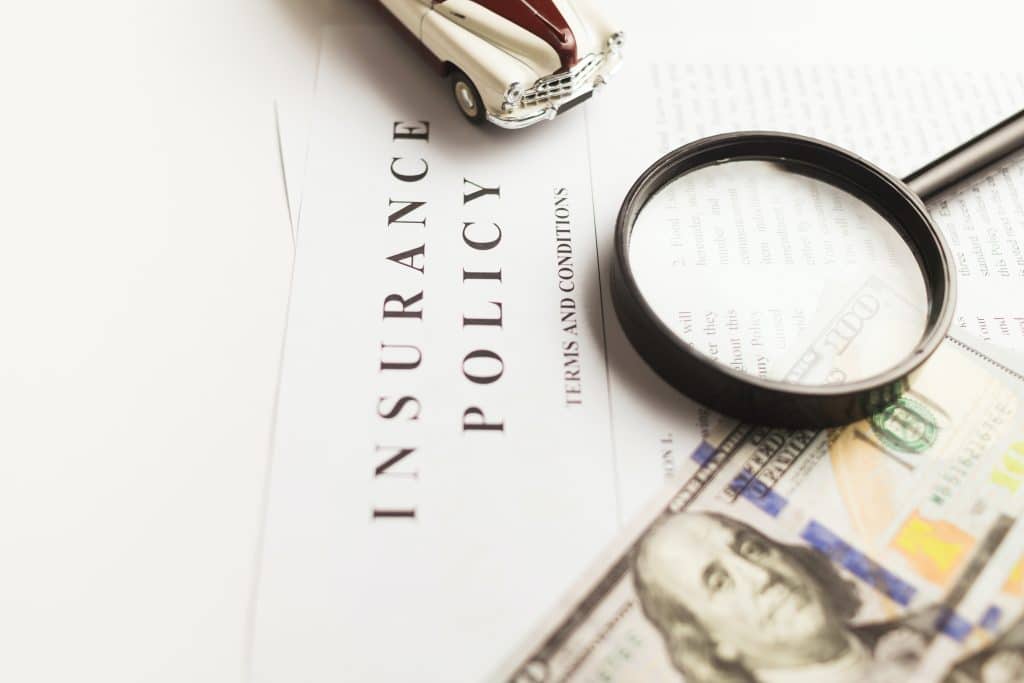What is Insurance Fraud: Legal Risks, Detection, and PI Expertise
Billions of dollars are siphoned off the insurance industry annually due to fraud, hiking up premiums and burdening honest policyholders. The simple act of misrepresenting information to an insurance company might leave many wondering: What are the real consequences of such deception? Can you go to prison for insurance fraud?
The reality is that insurance fraud isn’t a minor infraction—it’s a crime. A crime that can, and often does, result in prison time. There are however minor nuances to the situation which we will discuss later.
In this guide, we’ll explore:
- What constitutes insurance fraud and its common manifestations.
- What are some potential legal consequences, including prison sentences.
- How private investigators uncover the truth behind dubious claims.
Understanding Insurance Fraud
Before delving into the consequences, it’s vital to first define what insurance fraud actually means.
When we talk about insurance fraud, it’s not just about making up claims that aren’t true. It’s a complex issue that can show up in different ways. But in a nutshell, it includes any attempt to gain a financial benefit from an insurance process using false information or deceit.
Here’s what it can look like:
- Exaggeration: Here, a genuine accident or loss has occurred. However, the victim might inflate the extent of the damage, seeking a heftier claim payout than they’re genuinely entitled to.
- Staged Accidents: These are intentional efforts to engineer an incident, such as a car collision, with the sole intent of unjustly claiming insurance money.
- Misrepresentation: This is the act of sharing false details during the insurance application process. An example could be misstating one’s health record on a life insurance form.
While the idea of getting some ‘easy money’ might be tempting for some, the real-world consequences of these actions can be severe. The motivation behind such fraudulent acts varies. Some are driven by desperation, while others by sheer greed.
It is also essential to understand that insurance fraud isn’t just limited to individuals trying to game the system. Businesses, medical professionals, and even legal experts have been caught in these deceptive acts, underscoring the importance of vigilance at every level.
If you’re in a situation where you suspect a fraudulent claim or if the details of a case don’t quite add up, seeking expert insight becomes invaluable.
Need clarity on a claim? Click here to see how we can help with insurance fraud.
Legal Consequences of Insurance Fraud
When we talk about insurance fraud, it’s essential to realize that the consequences stretch far beyond a single deceptive act. Insurance fraud isn’t an isolated incident that affects only the perpetrator and the insurer.
Instead, it creates a domino effect, touching everyone from policyholders to stakeholders in the industry. Honest clients may face inflated premiums, businesses may suffer from a tainted reputation, and the overall trust in the insurance system diminishes.
Here are some of the most common questions regarding insurance fraud answered:
Q. Are all instances of insurance fraud major crimes?
No, insurance fraud can be categorized into “soft” or “hard” fraud. Soft fraud might involve a genuine claim but with exaggerated details, whereas hard fraud involves more deliberate actions like staging an accident. The legal repercussions vary based on the severity of the fraud.
Q. Can you go to Prison for Insurance Fraud?
Absolutely. The consequences for insurance fraud vary depending on several factors, but incarceration is a real possibility. Here’s a breakdown:
Soft Fraud: Involves minor exaggerations on a legitimate claim. Though it might seem minor, it’s illegal and can lead to:
- Penalties
- Fines
- Probation
- Short jail sentences, especially for repeat offenders
Hard Fraud: Deliberate acts like fabricating a loss or staging an accident. Consequences are more severe, including longer prison sentences.
The exact penalties can vary depending on where the crime occurs. Some jurisdictions might have stricter punishments than others.
Factors influencing the sentence
- Amount of money fraudulently claimed
- Method of fraud
- Previous convictions of the offender
- Strength of evidence presented in court
Q. What are some of the consequences of committing insurance fraud?
Convicted individuals often face hefty fines that can far surpass the value of the fraudulent claim. Courts may also order these individuals to pay restitution to compensate the insurance company for the falsely claimed amount.
Even if individuals don’t end up in prison, probation or parole can restrict their freedoms, mandating regular check-ins and strict adherence to guidelines.
Such a conviction permanently tarnishes one’s record, complicating future activities like job hunting, applying for housing, or traveling internationally.
Moreover, the ripple effects of insurance fraud go beyond just legal penalties. Fraudulent claims push up premiums for everyone, making insurance more costly. Those found guilty of fraud might later find it hard to secure insurance coverage. The personal stigma attached to a fraud conviction can also damage personal relationships and result in social ostracization.

What to Do if You Suspect Insurance Fraud?
If you have concerns that someone is trying to involve you in a potential insurance fraud scheme, it’s paramount to handle the situation with utmost caution and precision.
Here’s a step-by-step guide:
Document Everything
Start by collecting all pertinent information. This could include dates, names, addresses, phone numbers, and any related correspondence. If it’s an incident, like a suspicious accident, photographs and witness testimonies can be invaluable.
Avoid Direct Confrontation
It might be tempting to confront the individual or entity you suspect, but it’s wise to avoid doing so. Direct confrontation can compromise any future investigations or escalate the situation.
Consult with a Private Investigator
Given the complexities involved in fraud cases, seeking the expertise of a private investigator can be beneficial. They can help validate your suspicions and gather concrete evidence.
Report to Authorities
Insurance fraud is a crime, and it’s essential to report it to the relevant legal authorities. In the U.S., you can report suspected fraud to the National Insurance Crime Bureau or the respective state’s insurance fraud bureau.
Stay Vigilant
Continue to monitor your insurance statements and reports. Keeping an eye out for any further discrepancies can aid any ongoing investigations.
Taking prompt and informed action can help curb the prevalence of insurance fraud and protect not just your interests but those of others in the community.
How to Avoid Insurance Fraud?
Detecting insurance fraud is a combination of vigilant policyholders, alert insurance employees, and the expertise of private investigators.
Insurance companies often have internal teams dedicated to spotting inconsistencies in claims. These could be sudden spikes in claim amounts, patterns of recurrent claims from a particular source, or claims that don’t align with the known facts of an incident.
There are numerous ways individuals or entities can be caught for insurance fraud:
- Someone with knowledge of the fraud might come forward – you can help if you have any infromation.
- Modern insurance companies use advanced software that flags inconsistencies in claim patterns.
- Private Investigators, with their surveillance techniques and deep-dive investigations, can unearth evidence of fraud.
- If an individual’s claim seems suspicious, insurance companies might conduct a detailed review of the individual’s application and medical history.
- Surprisingly, many fraudsters have been caught because they’ve shared details or images on social media that contradict their claims.
By understanding the methods of detection and the legal processes surrounding prosecution, individuals can better appreciate the risks involved in insurance fraud, further underscoring the importance of honesty and integrity in all insurance dealings.
Why Hire a Private Investigator for Insurance Fraud Cases?
When faced with suspicions or inconsistencies, it’s natural to feel overwhelmed. But there’s a distinct advantage in enlisting the help of a trained eye—a private investigator (PI).
1. Expertise in Gathering Evidence
PIs are skilled in the art of surveillance, collecting video, audio, and photographic proof without arousing suspicion. Such evidence can be invaluable in court.
2. Comprehensive Background Checks
Beyond the apparent, PIs delve deep into a subject’s history, uncovering patterns, affiliations, and discrepancies that could shed light on fraudulent behaviors.
3. Knowledge of Legal Parameters
A good investigator knows the boundary between legal surveillance and invasion of privacy, ensuring that evidence gathered is admissible in court.
4. Swift and Discreet Operations
While you might be emotionally involved, a PI operates objectively and discreetly, reducing the risk of alerting the subject.
5. Leveraging Technology
Today’s PIs employ cutting-edge technology in their operations, from advanced tracking devices to state-of-the-art camera equipment, enabling accurate and extensive data collection.
6. Financial Savings in the Long Run
By uncovering fraud quickly, you can potentially save thousands, if not more, in unwarranted payouts or legal fees.
At Privin, our team of investigators brings decades of combined experience in the field of insurance fraud. Our deep understanding of the domain, combined with our tech-savvy approach, ensures that every concern is addressed thoroughly and professionally.
How to Hire an Expert for Insurance Fraud Investigations: A Quick Guide
Navigating the world of private investigations? Here’s how to ensure you’re making the right choice with Privin.net:
- Define Your Concerns: Whether you’re faced with suspicious claims, potential staged incidents, or misrepresented information, clarity starts with identifying the specifics.
- Rely on Specialized Expertise: At Privin, our licensed investigators have a deep-rooted understanding of the intricacies of insurance fraud. Their vast experience ensures meticulous scrutiny and evidence-based conclusions.
- Engage in a Comprehensive Consult: Book a consultation with our private investigator and learn how we can help you. This isn’t just a conversation—it’s a gateway into our strategic approach, tailored to your unique scenario.
Insurance fraud isn’t just a concern—it’s a tangible threat with real consequences. To seek help, hiring a private investigator through our extensive network. Our process is simple, and to the point.
With decades of expertise in unravelling intricate insurance fraud cases, we are here to help.
From surveillance to evidence gathering, our seasoned investigators are equipped to bring clarity to the foggiest of situations.
Connect with our seasoned experts and let Privin bring clarity to your concerns related to insurance fraud.





